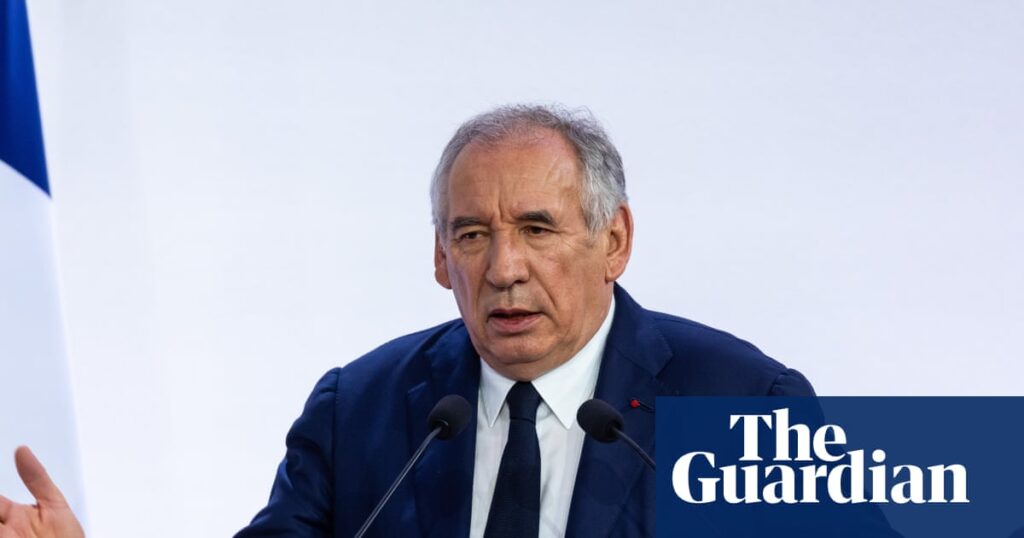France’s embattled prime minister looks likely to be ousted and his government toppled next month in a high-stakes confidence vote that could plunge the EU’s second-biggest economy into even deeper political crisis.
François Bayrou said on Monday that he would seek parliamentary backing for his unpopular plans to shore up France’s ailing public finances on 8 September, asking deputies to “confirm the scale” of spending cuts he says are needed to save €44bn (£38bn) a year.
“We face an immediate danger, which we must tackle … otherwise we have no future,” he said of the country’s huge debt burden, adding that the vote would focus on whether MPs agreed with the gravity of the danger, and choose the path to fix it.
He said: “There are moments … when only a calculated risk can allow you to escape a more serious risk. It is a matter of the survival of our state, the image of our nation, and each and every family.”
Bayrou said France was going through a “decisive moment”. If the government secured a majority in the confidence vote, it would be confirmed, he said, but “if it does not have a majority, the government will fall”.
Early reactions suggested the centrist prime minister could well lose his gamble, toppling a government that was formed only last December after the premature collapse of his predecessor Michel Barnier’s even shorter-lived administration.
The leader of the opposition party National Rally (RN), Jordan Bardella, said his far-right party would “never vote in favour of a government whose decisions are making the French suffer”. Bayrou had in effect announced “the end of his government”, he said.
Manuel Bompard of the radical left Unbowed France (LFI) said: “The chips are down, and it is up to everyone to stake out their position clearly.” His party’s deputies “will vote on 8 September to bring down the government”, Bompard said.
The Green party leader, Marine Tondelier, said on social media her parliamentary group would also vote against the government, as did the Communist party (PCF). Tondelier said Bayrou’s announcement amounted “de facto to a resignation”.
Olivier Faure, the leader of the centre-left Socialist party (PS), also said it would vote against the government. Bayrou had “chosen to go”, Faure said, adding that it was “unimaginable” that PS or any other opposition party would vote for him.
Bayrou acknowledged that the vote was a gamble. “Yes, it’s risky – but it’s even riskier not to do anything,” he told a press conference. France’s budget deficit hit 5.8% of GDP last year, nearly double the official EU limit of 3%.
Opposition leaders said that if the government did fall, they would demand the dissolution of parliament and new elections. Bardella said: “Our fellow citizens are waiting for a change and a return to the ballot box: we are ready.”
after newsletter promotion
Nevertheless, President Emmanuel Macron, whose shock decision to dissolve parliament in June 2024 produced an assembly divided into three opposing groups, none of them with anything like a majority, is thought unlikely to want to repeat the experiment.
Analysts believe Macron is more likely to try to avoid another early election, instead aiming to appoint a new prime minister – although who that might be, and how they might be any more effective, is open to question.
The confidence vote is due to be held two days before planned protests across France against the government’s austerity budget that have been widely relayed on social media and are supported by LFI and some trade unions.
The calls have drawn comparisons to the gilets jaunes (yellow vests) protests that erupted in 2018 over fuel price increases and the cost of living, eventually spiralling into a broad movement that seriously challenged Macron during his first term.

